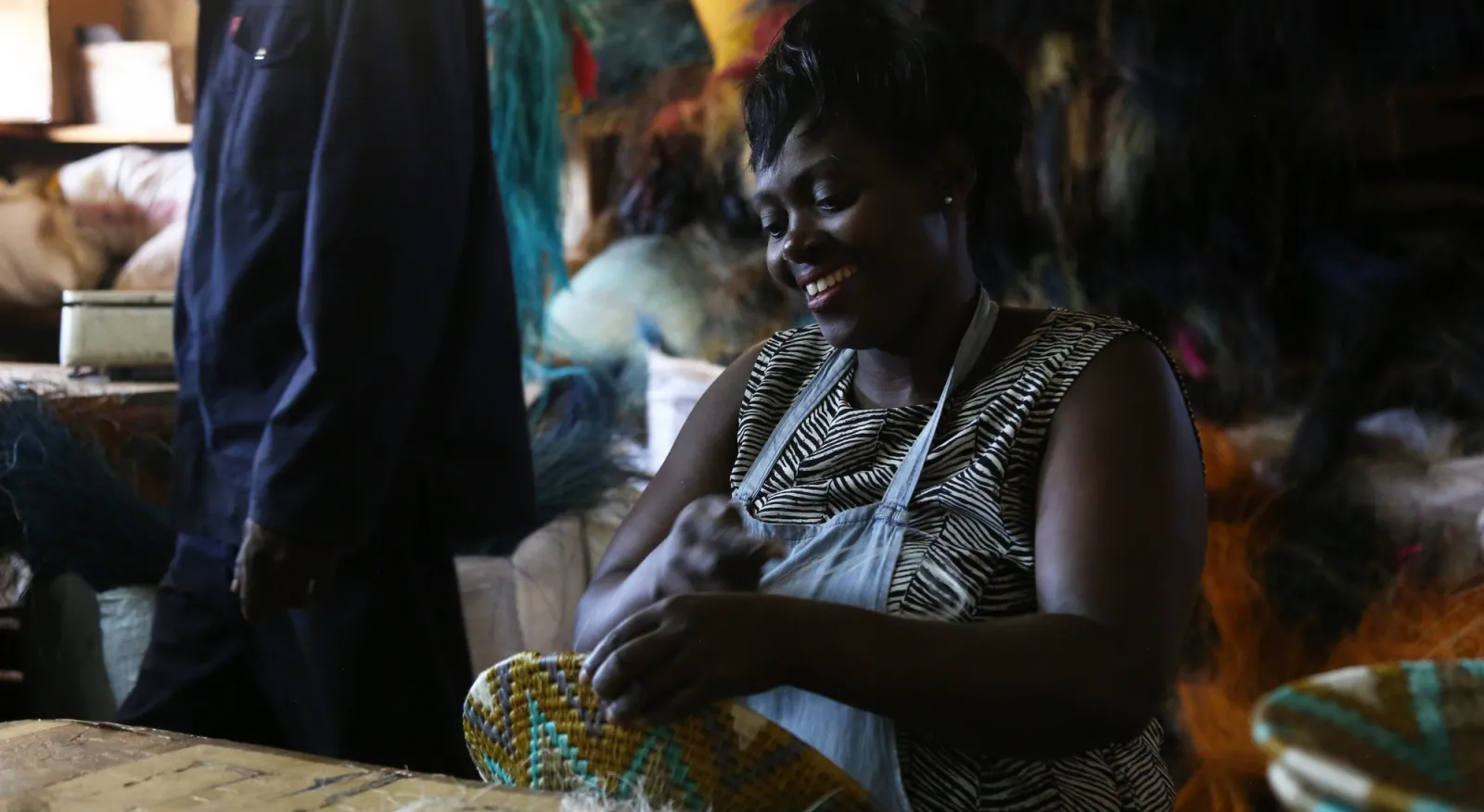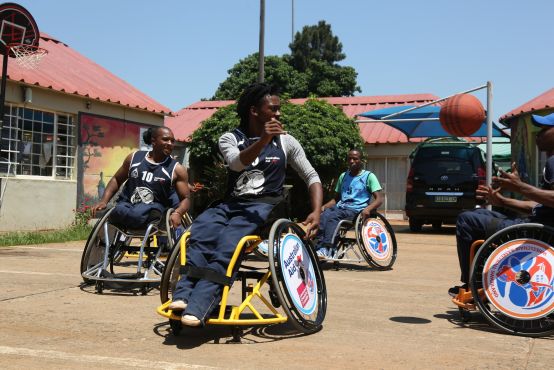
About Eswatini
Eswatini, officially the Kingdom of Eswatini, is a small landlocked country in Southern Africa. It is bordered by Mozambique to its northeast and South Africa to its north, west, and south.
The population is around 1.2 million people and is composed primarily of ethnic Swazis. The Swazi people are proud and extremely friendly.
The Swazi people established their kingdom in the mid-18th century. The kingdom under the name Swaziland was a British high commission territory from 1903 until it regained its full independence on 6 September 1968. In 2018 the official name was changed from Kingdom of Swaziland to Kingdom of Eswatini, mirroring the name commonly used by the Swazi people.
Eswatini is one of the world’s few remaining absolute monarchies, a form of government that gives the King, as head of state, supreme authority that supersedes all written laws, legislature or customs. The current king is Mswati III, who ascended to the throne in 1986.
Eswatini has close economic links to South Africa, which it depends on for about 70% of its imports and about 70% of exports. Eswatini is a member of the Common Monetary Area (CMA), with Lesotho, Namibia, and South Africa. Under the CMA, the Eswatini lilangeni is pegged at par to the South African rand, which is also an alternative legal tender in the country.
Poverty has persisted despite the country’s lower-middle-income status. Around 32% of Swazis lived below the national poverty line in 2022. Challenges to poverty reduction include slowing economic growth, adverse weather patterns, the high prevalence of HIV and AIDS, high unemployment, and high inequality.
Australian volunteers have supported a wide range of partner organisations in Eswatini to achieve their development goals since 1988.
Learn more about the Australian Volunteer Program's work in Eswatini.
Key things to consider about volunteering in Eswatini
- Crime can be a concern in Eswatini. In dense urban areas car-jackings, muggings and robberies are not uncommon.
- Most meals in Eswatini include meat. While some vegetarian and vegan options are available, the choices are limited, and it can be challenging to live in Eswatini for people who follow these diets.
- Due to the political system, there are occasional riots and protests, however these are not common and are best avoided.
- Travelling around Eswatini can be challenging. Some volunteers opt to purchase a second-hand car to assist with movements around the country.
- Learning the language can help build relations. Many people speak basic English, but learning siSwati will be an advantage for in-country volunteers.
- Eswatini is home to one of Africa’s premier arts and music festivals. MTN bushfire is a diverse, inclusive and family-friendly music and arts festival held around May each year.
Culture and religion
Many partner organisations are based in Mbabane (the capital) and Manzini. Life in cities is a blend of traditional and western cultures, with shops and markets that offer different types of goods, as well as some modern hotels and restaurants.
Eswatini is conservative, both in terms of religion and culture. The population is predominately ethnic Swatis. Eswatini is known for its excellent crafts and internationally recognised festivals.
Religion
Over 80% of the population in Eswatini practices Christianity, while 15% follow traditional religions.
Dress
Dress can be conservative and traditional. It is recommended that volunteers wear relatively conservative clothing and when travelling outside cities, and in rural areas women should wear long skirts in respect of local traditions.
Language
The national language is siSwati and is spoken by 95% of the population. English is also an official language and much of the population are fluent.
The program provides funding to support language lessons. More information on this process will be available during the onboarding process.
Explore our Pride Guides
LGBTQIA+ program participants must be aware of the country's context before undertaking an assignment. Pride Guides are designed to introduce key issues related to people with diverse SOGISEC and their participation in the program.
Learn more
Day to day life
Climate
The general climate of Eswatini is characterised as subtropical and features wet, hot summers. Rain falls mostly during the summer months, often in the form of thunderstorms. Winter is the dry season, and the general temperature is cooler.
It is important to note the effects of climate change on day-to-day life and weather patterns in Eswatini, and this will look different based on location. According to the World Bank, Eswatini has identified four key sectors at risk to climate change which have been prioritised in adaptation strategies: agriculture, water, biodiversity and ecosystems, and health.
Telecommunications
Telecommunications access in Eswatini is similar to Australia, however internet access can be slow and at times unreliable.
Food and dining
Food options in Eswatini are generally meat based, with fewer vegetarian and vegan options. Some supermarkets in the cities have more options and variety, but availability of products can be limited.
Accommodation
Eswatini has limited accommodation options of a standard experienced in Australia. Finding suitable options can be difficult due to limited supply of suitable accommodation, especially from a safety and security perspective.
Find out about our in-country allowances.
Transport
King Mswati III International Airport is the country’s international airport, located about one hour’s drive from Mbabane. It offers daily flights to Johannesburg, South Africa. Public transport in Eswatini is mainly road-based with plenty of mini-bus taxis, although these are only reliable in certain parts of the country. Used cars can be purchased by volunteers if needed.
Challenging attitudes to disability through sport
Learn how an Australian volunteer physiotherapist is working to improve the opportunities for people with disabilities in Eswatini.
Find out more
Personal safety
When it comes to your safety and security you must be willing to adapt your behaviour and lifestyle to minimise the potential for being a target of crime. Like anywhere in the world, crime does exist in Eswatini.
The security context is very different from that which volunteers may be accustomed to in Australia. Vigilance, compliance with security guides and active responses to security and safety advice must be adhered to. Security presents a range of challenges and needs very careful consideration when selecting places to live, where to walk and how to travel.
Health centres and hospitals (private and public) are within reach although of a basic standard. More specialist medical care would require travel to neighbouring South Africa.
Personal safety issues constantly evolve, we recommend you keep an eye on Smart Traveller for current information.
Mobility and accessibility
We’re committed to ensuring that international volunteering is inclusive and accessible to Australians from a range of backgrounds, with diverse perspectives, identities and abilities. In Eswatini moving around might be more challenging due to poor infrastructure and inconsistent access options for those with a physical disability.
To support this, Access and Inclusion Plans are available for volunteers with disabilities to assess their needs and ensure their living and working requirements are fully considered. Indigenous Pathways is an Indigenous-led program that focuses on providing culturally safe, flexible and tailored support for Aboriginal and Torres Strait Islander volunteers.
Before applying for a volunteering assignment in Eswatini, please do some further research on living in Eswatini and the organisation you are hoping to volunteer with. Successful applicants will have the opportunity to discuss expected living and working arrangements with their recruitment officer.